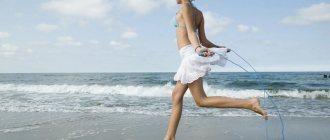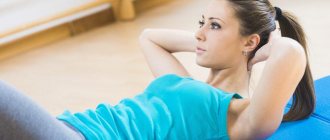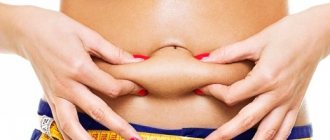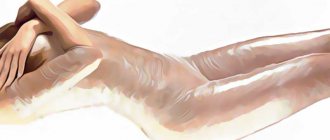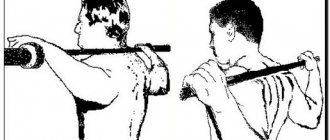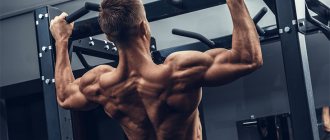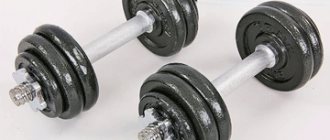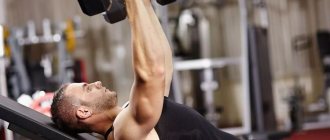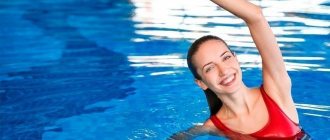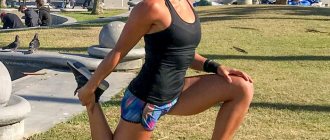Proper nutrition can boost your physical performance and can help your body recover and adapt.
However, one common question is whether you can eat before or after your workout.
This may be especially true if you exercise first thing in the morning.
Here's everything you need to know about eating before and after a workout.
Is it possible to eat before and after training?
Exercising on an empty stomach and after eating can lead to different reactions
Research has shown that your body's response to exercise may vary depending on whether or not you eat before exercise.
Exercising after meals increases your body's ability to use fat as an energy source.
The main sources of energy for your body are fats and carbohydrates.
Fat is stored as triglycerides in adipose tissue, and carbohydrates are stored in the muscles and liver as a molecule called glycogen.
Carbohydrates are also available as blood sugar.
Research shows that blood sugar levels are higher before and during exercise when you eat before exercise (1, 2).
This makes sense because most of these pre-workout studies included carbohydrates in the diet, which the body uses for energy during exercise.
When you exercise on an empty stomach, more of your body's energy is met by breaking down fat.
A study of 273 participants found that fat burning was higher during fasted exercise, while glucose and insulin levels were higher during exercise after eating (3).
This difference between carbohydrate and fat metabolism is part of your body's natural ability to function both after and without food (4).
Exercising on an empty stomach may not lead to more fat loss
Given that your body burns more fat for energy during fasting, it's tempting to think that this will lead to more loss of body fat over time.
One study demonstrated different responses in people who exercised on an empty stomach compared to those who ate before exercising (5).
Specifically, the muscle's ability to burn fat during exercise and the body's ability to maintain blood sugar levels were improved by exercise in the fasted state, but not by exercise after a meal.
Because of this, some scientists believe that your body's response to exercising on an empty stomach may produce more beneficial changes in body fat than exercising after a meal (6).
However, although there is some evidence suggesting the potential benefits of fasted exercise, there is no conclusive evidence that exercising on an empty stomach leads to greater weight or fat loss (7).
Although there has been limited research, two studies showed no difference in fat loss between women who exercised on an empty stomach and those who exercised after eating (8, 9).
Summary:
How your body responds to exercise depends on whether you eat before exercise or not. Exercising in a fasted state forces your body to use more fat for energy. However, research does not show that it leads to greater body fat loss.
Trial and error method
Before you decide on the amount of time required before starting a workout, you need to experiment first. While some people have no problem exercising immediately after eating, others tend to feel nauseous. Experiments will help you decide which of the two groups you belong to.
For some people, it's normal to wait 1 to 3 hours, but no two people have the same digestive system. The only way to understand how your stomach will cope with this situation is to exercise between meals.
Typically, three to four hours before your workout, you'll want to eat a meal rich in carbohydrates and protein and low in fat. Carbohydrates provide your body with the glycogen it needs for the gym. If you miss them, your muscles will fail you when you need them most.
If you're trying to lose weight, it may seem inappropriate to eat a carbohydrate-rich meal before heading to the gym. However, complex carbohydrates such as lentils, beans, starchy vegetables and whole grains will not only provide you with fiber and nutrients, but also act as the fuel you need to exercise. However, refined carbohydrates tend to increase your appetite and also increase belly fat, which is something you want to avoid.
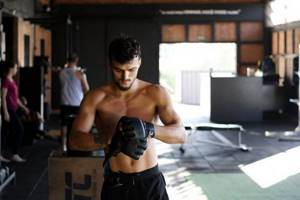
In addition, eating a fatty meal before a workout slows down digestion. On the other hand, proteins are designed to support muscles. During exercise, your muscle cells are destroyed and then rebuilt. Eating the right proteins will provide your body with the essential amino acids your muscles use to repair themselves.
Some excellent protein sources include chicken and lean meats as they contain all the essential amino acids. Some grains, such as quinoa, beans and various vegetables, also contain sufficient protein for athletes.
If you are one of those people who prefer to work out early in the morning, you need to get up early enough to have breakfast an hour before heading to the gym. Make sure you eat well before exercising.

Eating foods rich in carbohydrates will definitely help you achieve maximum results. It will also allow you to train for longer periods of time and at higher intensity. If you don't eat breakfast before the gym, you'll feel sluggish or dizzy.
If you want to exercise within an hour of breakfast, keep it light or drink something like a sports drink. Include carbohydrates for extra energy.
There is a misconception that you shouldn't eat before training. This is completely false. The truth is, you should make sure to eat something before any activity to maintain strength in your body.
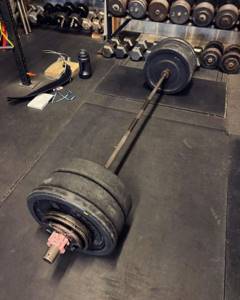
This misconception is because working out on an empty stomach causes your body to burn excess fat during exercise. This is very wrong as fasting can cause more harm to your body than good.
Your body requires a certain amount of sugar for fuel during workouts. In the absence of glucose, the body is forced to convert muscle tissue into energy. Remember that you are trying to build muscle, not deplete it. Your body also needs energy for all types of high-intensity exercise.
You won't be able to do high-intensity workouts on an empty stomach because you won't have the energy to do them. You need stamina, strength and speed to burn calories and get quick results, which will not be possible with low blood sugar. The result will be a feeling of dizziness and lethargy.
Exercising on an empty stomach may not improve performance
Many people who want to be in the best shape possible wonder whether exercising on an empty stomach will harm their performance.
Several studies have attempted to answer this question. One analysis examined 23 studies on whether eating before exercise improves physical performance (1).
Most studies have found no differences in performance between those who ate before aerobic exercise lasting less than an hour and those who did not (10, 11, 12).
Other studies examining high-intensity interval training (HIIT) also found no difference in performance between fasted and postprandial exercise (13, 14, 15).
Although only limited information is available regarding strength training, some studies suggest that exercise on an empty stomach or after a meal may produce similar results (16).
One reason why a clear benefit of eating before short-term exercise was not seen in these studies may have to do with the body's own energy reserves.
Your body contains about 2,000 calories as glycogen and many more as fat (17, 18).
All this stored energy allows you to exercise even if you haven't eaten for several hours.
However, some studies have shown improvement when carbohydrate-containing foods or supplements are taken before exercise (19, 20).
Eating before short-term exercise actually improves performance in some people, so it's up to you to decide whether to eat before exercise or not.
Summary:
Most studies show no clear benefit from eating before short-term aerobic exercise or high-intensity interval training such as HIIT. However, some studies have shown that eating before exercise improves performance.
How long after eating can you exercise?
Content:
How long after eating can you exercise? This information will be useful to anyone who is interested in training. Playing sports, leading a healthy lifestyle and eating right are, perhaps, the three most important rules on the path to beauty and health.
How long after eating can you exercise?
When, where and how to exercise correctly so that the results from physical exercise are as effective as possible? Since childhood, we have known the fact that after eating we don’t need to run and jump, but rather sit quietly or lie down for a while.
Nutrition is a kind of fuel for the body. That is, people draw energy from food in order to spend it later. It takes a certain amount of time to process food and take the substances we need from it. When the body is busy processing food, it is better not to burden it with anything else at this time.
What is the best time to exercise? If you start exercising immediately after eating, you may feel a heaviness in your stomach. The more you eat, the longer it will take before you start exercising.
Advice!
Ideally, it is not recommended to exercise within two to three hours after eating. The discomfort and heaviness in the stomach that accompany the exercises will not allow them to be carried out efficiently. In addition, after eating you often want to sleep.
There can be no effective good training in such a state.
When is the best time to exercise to lose weight? Exercising after meals slows down the process of digesting food. During exercise, muscles work and blood flows to them. In order for the blood to flow in a larger volume, the body constricts blood vessels for other actions, including digestion. There is no necessary blood flow for digestion.
The stomach and muscles begin to compete with each other for the amount of blood. This reduces the effectiveness of the exercises performed and impairs digestion. That is, there is no point in eating or exercising. Constriction of blood vessels during digestion of food can even cause convulsions, and this is in no way compatible with health.
If a person is susceptible to such an unpleasant sensation as heartburn, then most likely it will appear if he starts exercising after eating. Vomiting may also occur.
Many people engage in fitness to lose weight and lose weight. Workouts that are performed immediately after eating do not bring the desired effect, and fat burning does not occur.
After eating, the body needs time to release adrenaline and slow down the production of insulin in the body.
The function of insulin is to store nutrients, including fat.
Although it is recommended to refrain from exercising for two to three hours, everyone’s body characteristics are different. Some people have better metabolism, some have worse metabolism. Therefore, everyone should have their own duration of the break from eating to the start of classes.
Eating before a long workout may improve performance
A large analysis of exercise studies lasting more than one hour found that 54% of studies reported better performance when eating before exercise (1).
Most studies showing the benefits of eating pre-workout have found benefits primarily with carbohydrate foods.
Eating slow-digesting carbohydrates or eating a few hours before exercise can promote long-lasting performance.
For endurance athletes, other studies have shown benefits from eating a high-carbohydrate meal three to four hours before exercise (21).
Consuming carbohydrates an hour before a long workout may also be beneficial (22).
Overall, there is stronger evidence to support benefits from eating before longer workouts compared to shorter workouts.
However, some studies have shown no benefit from eating before exercise (1).
Summary:
While some mixed results have been reported, eating before a long workout is likely beneficial. Recommendations to eat food three or more hours before exercise are common, but it may be helpful to eat at least an hour before exercising.
Exercise after meals reduces the harm of fatty foods
High-fat foods may not be so bad for our bodies if we exercise shortly after eating, say Japanese researchers from Kyoto Prefectural University.
The results show that walking and light exercise an hour after eating a fatty meal lowered blood levels of triglycerides, which tend to occur after eating fat. Moreover, exercising after a meal is more effective in lowering triglyceride levels than exercising before a meal.
The study involved just 10 people, men and women, whose triglyceride levels were measured after they ate a fatty meal (about 38% fat). On the first day, people did physical exercise an hour before meals, and on the second day, an hour after. On the third day, study participants only ate.
On a day without exercise, two hours after lunch their triglyceride levels rose from 66 mg/dL (milligrams per deciliter) to 172 mg/dL. The normal level is considered to be 150 mg/dl and below (on an empty stomach).
When people exercised before lunch, their triglyceride levels increased to 148 mg/dL. When they exercised after eating, their triglyceride levels increased to 131 mg/dL.
Six hours after eating a fatty meal, all participants' triglyceride levels were about the same, regardless of whether they exercised that day or not. However, even a temporary increase in triglyceride levels after eating a fatty meal can lead to cardiovascular disease over time, researchers say.
Exercise after a fatty meal speeds up the body's absorption of fat, thereby lowering triglyceride levels, the researchers say. And this is a good reason to go for a walk after a hearty feast.
Source: https://zhenskoe-mnenie.ru/themes/diets/fizicheskie-uprazhnenija-posle-edy-snizhajut-vred-zhirnojj-pishhi/
If you don't eat before your workout, you should eat after it.
While the importance of eating before a workout can vary depending on the situation, most scientists agree that eating after a workout is beneficial.
Research shows that certain nutrients, especially protein and carbohydrates, can help your body recover and adapt after exercise.
Eating after a workout is especially important if you are exercising on an empty stomach.
If you eat within a few hours of your workout, the nutrients you consume may still be present in high concentrations in your blood during and after your workout (23).
In this case, these nutrients can help with recovery. For example, amino acids can be used to create proteins, and carbohydrates can replenish your body's glycogen stores (24).
However, if you choose to exercise on an empty stomach, your body will use its own energy reserves. Moreover, a limited amount of nutrients is still available for restoration.
Therefore, it is especially important that you eat relatively soon after your workout.
One study examined whether consuming a protein-carbohydrate meal after exercise on an empty stomach resulted in a greater increase in protein production in the body compared to when no nutrients were consumed (25).
Even though there was no difference in how much new protein the body produced, eating after exercise did reduce the amount of protein broken down.
How soon should you eat after training?
While eating after exercise is important, some studies have shown that it may not be necessary to eat immediately after exercise.
For example, one study looked at how well muscle carbohydrate (glycogen) stores were restored after two hours of cycling (26).
In one study, participants began eating immediately after exercising, while in another study they waited two hours.
There were no differences in the recovery of muscle carbohydrate stores within 8 or 24 hours after exercise, indicating that waiting two hours to eat was not harmful.
Another study examining the importance of protein intake immediately after exercise found mixed results.
While some studies show that consuming protein immediately after exercise is beneficial for muscle growth, others show no harmful effects of waiting several hours (23).
Based on the available evidence, a reasonable recommendation is to eat as soon as possible after exercise.
Again, eating as soon as possible after exercise may be more important if you choose to exercise on an empty stomach.
Summary:
Getting nutrients in the hours shortly before or after exercise is very important. If you don't eat before your workout, try eating soon after your workout. Consuming protein can help repair your muscles and other tissues, while carbohydrates can help restore glycogen stores.
How to lose weight effectively: how long after eating can you exercise, recommendations
People who maintain an active lifestyle or regularly go to the gym have to pay more attention to everything they do. Particularly important is the question of when you can exercise after eating. After getting a boost of energy from pumping up your muscles, it is equally important that these exercises do not cause harm to your health.
During training, the heart, joints and blood vessels are subject to increased stress, so every novice athlete should know how to eat properly so that he can quickly achieve the desired results. Therefore, special attention must be paid to the quality of nutrition.
How many hours before training can you eat?
If you are planning to exercise soon or have already switched to a new activity regimen, then know: you can start training no earlier than 1.5–2 hours after eating. Moreover, in this case we mean a complete and balanced diet, which provides the amount of proteins, carbohydrates and a moderate amount of fat necessary for the body.
Keep in mind that you are allowed to eat some carbohydrates a few minutes before your workout. This is especially true for those athletes who experience mild dizziness during exercise . Also, this recommendation should be followed by those who are accustomed to eating often and in small portions.
How long after eating can you train for various sports?
The recommendations given in this article regarding the time after which you can start training after eating are quite general , and therefore they may differ for each individual sport.
- you need to take into account the quality and quantity of food eaten. For example, if you had a heavy lunch consisting of fatty or heavy food, then you will experience a feeling of heaviness in the abdomen after about three hours. Therefore, during this time, you should refrain from vigorous exercise after eating. But you can offer another option - switch to proper nutrition;
- If you have yoga planned for every day or you are on a diet and follow the principle “never eat more food than in an hour you could freely exercise,” then after one hour you can start exercising. However, very few athletes adhere to this diet. Therefore, in order to avoid negative consequences, you must follow the following rule: the more intense loads you expect, the earlier you should have your last meal before training. If you are interested in chess, you can start playing chess within 10 minutes after eating. Other sports may require 2–3 hours or more;
- If you are involved in specific sports where you have to endure blows to the stomach or you have to perform yoga exercises, breathing exercises or meditation, then you will have to increase the time before the next training session.
On topic: Water fasting for weight loss
It is widely believed that it is advisable to start breathing exercises, meditation and various “zeros” at least 3 hours after eating, and also at least 2 days after the last drink.
Because of this, such exercises are most often planned in the morning when waking up before eating.
This time is ideal for engaging in such practices, because the maximum number of hours have passed since the last meal.
How many hours after training can you eat?
Due to the wide variety of options, you can choose the most suitable one for yourself. However, many athletes prefer protein shakes due to their simplicity and good taste. By regularly providing your body with protein, you will provide it with a source of energy, which will be spent on muscle recovery and muscle mass gain.
How long after training to eat if you are losing weight?
Those who adhere to a special diet in order to lose weight, as well as people who are keen on fitness, running, dancing or those who go to the gym, should refrain from eating for at least 1–1.5 hours after training.
The fact is that after intense exercise, the process of burning fat continues after the workout .
Therefore, if you decide to immediately have a snack after physical activity, your body will direct its energy to burning this “fuel” and not fat.
- those who watch their diet and also adhere to fractional meals are allowed to eat a small amount of protein;
- people who do not pursue the goal of losing weight and are fond of such active sports as football, hockey, volleyball and others are allowed to have a full meal after half an hour to an hour to restore energy after intense exercise;
- It is not recommended to eat immediately after exercise. It is necessary to give the body time to recover. You also need to monitor the amount of food you eat, because overeating is not good for the body.
General tips for pre- and post-workout nutrition
Nutrition largely influences the effectiveness of training , so this factor should not be underestimated.
- When thinking about how long before you can eat after a workout, you first need to figure out what your goals are;
- Constantly monitor your condition: if you feel that you do not have enough strength for training, then you should not refuse a light snack before training. However, you should not eat heavy foods in large quantities. It is quite possible to limit yourself to one bar or any fruit;
- Avoid exercising if you have just eaten a large meal;
- Don't give up on protein, no matter what your goal is to lose weight or maintain strength after a workout. In reality, protein is nothing more than pure protein that the body needs to build muscle;
- For effective weight loss, the following must be taken into account: the number of calories expended during physical activity should always be greater than those consumed. If you regularly eat heavily after training, then you are just wasting your time. After all, in any case, the advantage will not be in your favor.
- Specialized drinks - isotonics - help to restore strength during exercise. They can be replaced with a self-prepared natural energy drink. To do this, you need to take two spoons of black tea and pour hot boiling water, leave for a while to infuse, and then pour this mixture into a half-liter container. The rest of the bottle space is filled with cold boiled water, and 20 tablets of ascorbic acid are added. After this, the mixture is thoroughly shaken, hermetically sealed and put in the refrigerator. Drink this drink in small sips during classes.
Conclusion
Keeping yourself in good shape is not so easy, because a person has to make great sacrifices. But in addition to various restrictions, you need to know what time is best to eat.
especially important if a person has to train very often . It is impossible to give an unambiguous recommendation here, since each case is individual.
After all, people can go on diets or engage in a certain sport without a special goal.
In addition, you need to consider the quantity and quality of food eaten before training.
However, if you are involved in active sports , then you should at least eat your last meal 3-4 hours before.
It is also necessary to refrain from eating for some time after exercise, otherwise your efforts will be in vain and the body will burn not the accumulated fat, but the food that will come to you.
Source: https://dietolog.guru/uprazhneniya-dlya-pohudeniya/cherez-skolko-posle-edy-mozhno-zanimatsya-sportom.html
Personal preference should be the determining factor
While research illuminates the effects of eating, or lack thereof, before exercise, the most important factor may be personal preference.
Pre-exercise nutrition may be more important for certain groups, such as high-level athletes and those who undergo prolonged physical activity (27).
However, most active people can make significant gains by exercising on an empty stomach or after eating.
Thus, your personal preferences regarding when you eat in relation to exercise should play the biggest role in your decision.
For some people, eating shortly before exercise can make them feel sluggish or nauseous. Others feel weak and tired when exercising on an empty stomach.
If you exercise in the morning, the time between when you wake up and when you exercise may influence your choice.
If you go for a run or to the gym immediately after waking up, you may not have enough time to digest and absorb your food before your workout.
The shorter the time between meals and training, the less food you should consume before training. This can help prevent feelings of fullness and discomfort during exercise.
As discussed, consuming healthy nutrients such as lean protein and carbohydrates from nutrient-dense foods is important shortly before or after a workout.
However, you have the freedom to choose to consume them pre-workout, post-workout, or both.
Summary:
Personal preference should determine whether you eat before or after a workout. Eating before exercise may be more important for high-level athletes and those who exercise for a long time, but most can benefit from exercise regardless.
Is fitness after eating good for your health?
All people who carefully monitor their health and keep their figure in excellent shape regularly engage in fitness. Sports training should always lead to good results. But when is the best time to exercise before or after a meal? And isn’t exercise harmful after eating food?
Triglycerides are one of the components of fats that are found in a person’s blood and provide him with additional energy for the whole day. They enter the body in the form of extra calories. Levels of triglycerides in the blood that are higher or lower than normal can lead to various diseases.
In Japan, scientists have found that exercising after eating is just as beneficial as before eating.
Important!
This fact seems incredible, because throughout our conscious life, parents and doctors strictly recommend that we not engage in physical activity with a full stomach.
Nobody forces you to do too much strength exercise after eating, but a brisk walk or bike ride will help lower your blood triglyceride levels.
This means that the food a person eats before exercise (especially fatty foods) can help prevent cardiovascular disease and reduce the risk of a heart attack.
If triglyceride levels in the blood are higher than the permissible norm, this can cause various diseases. For example, atherosclerosis, liver diseases (cirrhosis, hepatitis B), Down syndrome, diabetes mellitus, gout, obesity and many others.
From this list you can see how many diseases can be avoided by doing fitness after eating food.
Positive test results were revealed as a result of an experiment conducted by Japanese scientific researchers. They proved that people who exercised within one hour after eating reduced their blood fat levels with moderate exercise, thereby ensuring a healthier future.
On topic: Low-calorie foods for weight loss
Triglycerides, which are found in the blood, are not only the source of many diseases at elevated levels, but are also the main component of fat, which in turn clogs the arteries, which leads to heart disease and the rapid gain of extra pounds. Triglycerides are one of the important components of blood. The main thing is that their indicators are always within acceptable limits, because they are a source of energy for the life activity and formation of the human body, which means they are vital for it.
Hormonal medications and pregnancy often contribute to elevated triglyceride levels. This occurs due to hormonal changes in the body. Too low levels of triglycerides in the blood are also contraindicated, as they are harbingers of kidney disease, lung disease and skin damage (burns, wounds, injuries).
All of the above allows us to conclude that it is very important to always monitor and maintain normal blood fat levels. This can be done by following a daily routine and proper diet, as well as moderate physical activity after lunch, which will be beneficial for health. But what is the best food to eat before a fitness class, and what should your workout be like after eating?
Advice!
Fitness classes, like any type of physical exercise, are one of the components of a healthy lifestyle. Before you start training, you need to fill your stomach with healthy foods.
It is desirable that they be filled with a large amount of complex carbohydrates, thus the food will provide the human body with the necessary energy for physical activity, and will give additional strength and a charge of positive emotions.
It should be recalled that fitness is good for health, and you can do it after eating, only the load should be moderate so that after training you feel great.
So, a walk in the fresh air at a brisk pace or riding a bike after eating will be an excellent fitness and will strengthen the blood vessels of the body, thereby tidying up blood circulation and the level of fats and cholesterol in it.
The best time of day for fitness is morning. It is morning workouts before and after a nutritious breakfast that will help you quickly get rid of unnecessary calories and thereby effectively reduce excess weight.
Morning fitness classes will help warm up all active muscles and provide a person with energy for the whole day.
It has been proven that after a morning walk, while air pollutants (factories and cars) have not yet become active, the oxygen that enters the lungs helps burn fat deposits, thereby reducing weight and providing a boost of vigor and good mood.
Any physical activity increases the amount of endorphins in the blood, which reduces stress levels and allows a person to cope with all assigned tasks with ease. Many people doubt whether fitness is good for health if you do it after eating? The answer is clear.
Attention!
Yes. But, in the event that the level of triglycerides in the blood is not lower than normal, but higher than its required level. The correct amount of triglycerides in the blood should be up to 3.01 mmol/l in a man and up to 1.70 mmol/l in a woman under 35 years of age. It should be noted that the triglyceride level increases with age by approximately 0.05-0.15 mmol/l.
If the level of fat in the blood is a good indicator, and there is no need to reduce it, then you can do fitness according to the old custom, two hours after eating.
In this case, it is necessary to increase physical activity and instead of walking, pay attention to exercise machines and other heavy types of sports exercises.
To create the right fitness schedule for yourself, it is recommended to take a blood test and make sure you are in good health.
People of ancient civilizations were involved in fitness; they went fishing and hunting, thereby always maintaining good physical shape. Since the 18th century, fitness has become the basis of people's physical health, relieving them of diseases and extra pounds.
After eating fatty foods, moderate exercise will help reduce the level of fats in the blood, thereby ridding the human body of a number of dangerous diseases. You should not do heavy physical activity after eating; it is better to spend time actively in the fresh air.
Source: https://lady.qip.ru/catalog/fitnes-posle-edyi-polezen-dlya-zdorovya
Summarize
- To eat or not to eat before training is a common dilemma, especially for those who exercise in the morning soon after waking up.
- Although exercising on an empty stomach can increase your body's ability to use fat as an energy source, it does not necessarily lead to greater fat loss.
- From a performance perspective, there is limited support for the importance of eating before short-term exercise. Eating before longer workouts may be more beneficial.
- Eating before exercise may also be more important for high-level athletes who do not want to compromise their performance.
- While you don't necessarily need to eat before your workout, it's important to get your nutrients in for at least a couple of hours afterward.
- So if you don't eat before your workout, try eating soon after.
- Overall, personal preference should be the main factor when deciding whether or not to eat before exercise.
Nutrition in sports
Why can't you exercise immediately after eating?
If you start doing any exercises on a full stomach, you will inevitably feel discomfort in the abdominal area, heaviness and discomfort. The reason for this is simple - the food has not had time to be digested, and roughly speaking, it jumps around your stomach in pieces. At the same time, it mixes with gastric juice, and your stomach from the inside begins to resemble a rather scary brew. Of course, to the displeasure of both your stomach and yours.
But in some situations this practice may even be harmless. This applies to those cases when breakfast is quite modest - for example, a glass of kefir with fruit. Some people have this characteristic that after a light snack they want to do some activity. If your stomach does not bother you during such activities, then of course you can exercise immediately after eating. But here it is worth mentioning that discomfort is not the only reason why such activities are contraindicated.
